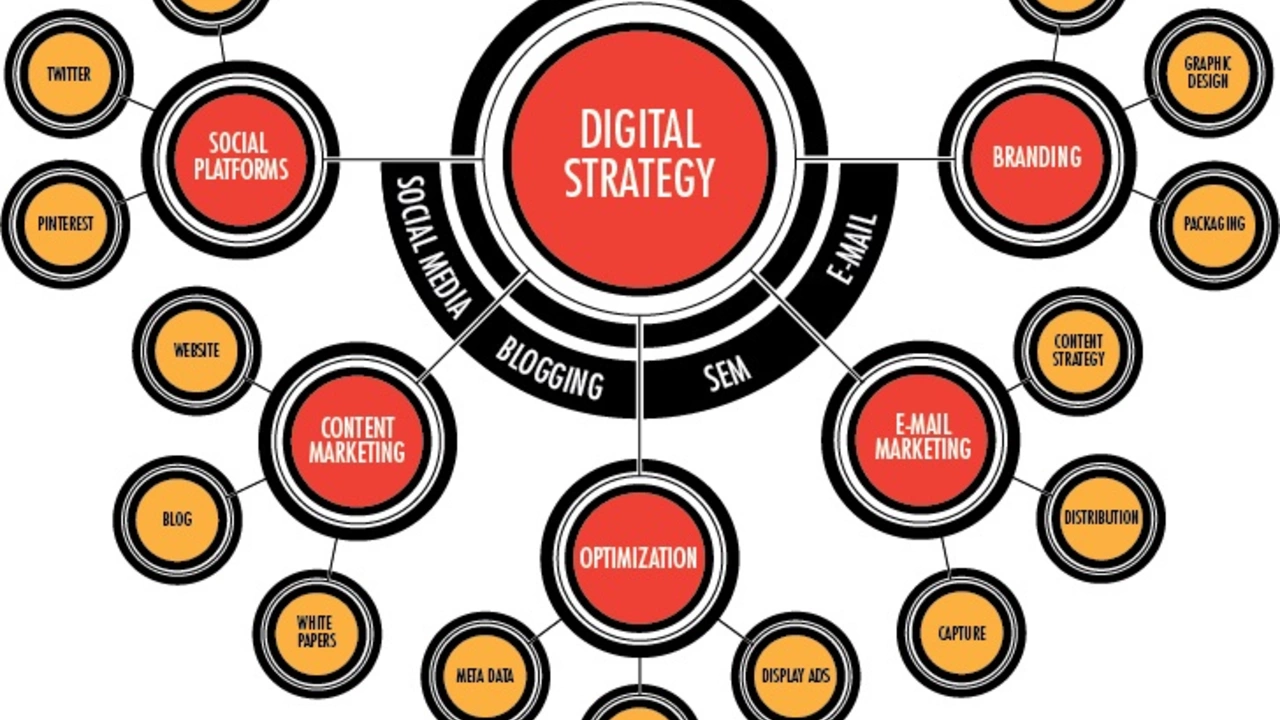
Understanding the Basics of Digital Marketing
Before we delve into the stages of digital marketing, it's essential that we first understand what digital marketing is. In its simplest form, digital marketing is the use of digital channels such as social media, search engines, email, and websites to connect with prospective and existing customers. It's all about reaching out to the right people, at the right time, and in the right place. It's a broad field that includes various strategies and techniques aimed at achieving different goals.
Developing a Digital Marketing Strategy
The first stage of digital marketing is to develop a comprehensive strategy. This involves identifying your target audience, understanding their needs and behaviors, setting clear and measurable objectives, and determining how you'll reach your audience and achieve your goals. Your digital marketing strategy is your roadmap to success. It guides your actions and lets you know if you're succeeding or failing. The more specific you can be with your strategy, the more effective your plan will be.
Building a Strong Online Presence
The next stage is to establish a strong online presence. This involves creating a professional, user-friendly, and SEO-optimized website, setting up social media profiles on the platforms your target audience uses, and creating a blog to share valuable content. Your online presence is your digital storefront. It's where your audience will learn more about your brand, products, or services, engage with you, and take desired actions such as making a purchase or signing up for your newsletter.
Crafting Compelling Content
Once you've built a robust online presence, the next step is to develop content that will attract, engage, and convert your audience. This could include blog posts, social media updates, email newsletters, videos, podcasts, infographics, webinars, eBooks, and more. The key is to provide valuable and relevant content that solves your audience's problems or meets their needs. Your content is what will help you build trust and credibility with your audience, position you as an expert in your field, and drive traffic to your website.
Search Engine Optimization (SEO)
SEO is a critical stage in digital marketing. It involves optimizing your website and content so they rank higher in search engine results pages (SERPs). The higher your pages rank, the more visibility and traffic you'll get. SEO involves various techniques such as keyword research and optimization, link building, technical SEO, and local SEO. It's a continuous process that requires regular monitoring and tweaking to keep up with search engine algorithm changes.
Social Media Marketing
Social media marketing is another crucial stage in digital marketing. It involves using social media platforms to reach your audience, build relationships, increase brand awareness, drive traffic to your website, and generate leads or sales. This could involve creating and sharing content, engaging with your audience, running social media ads, and monitoring your performance on the platforms. It's essential to choose the right platforms that your target audience uses and to have a consistent and active presence.
Email Marketing
Email marketing is a powerful stage in digital marketing. It involves collecting email addresses from your audience and sending them regular emails to build relationships, provide value, promote your products or services, and encourage conversions. This could involve sending welcome emails, newsletters, promotional offers, and more. Email marketing is one of the most effective digital marketing strategies for building loyalty and driving conversions.
Monitoring and Analyzing Performance
The eighth stage of digital marketing involves monitoring and analyzing your performance. This is crucial for determining what's working, what's not, and where improvements are needed. You can use various tools to track your performance such as Google Analytics for your website, social media analytics for your social media platforms, and email marketing metrics for your email campaigns. By analyzing your performance, you can make data-driven decisions and continuously optimize your strategies for better results.
Optimizing and Improving Strategies
The final stage of digital marketing involves optimizing and improving your strategies based on your analysis. This could involve tweaking your content, improving your SEO, optimizing your social media posts, segmenting your email list, or testing different website designs. It's a continuous process of testing, learning, and improving to achieve better results. Remember, digital marketing is not a set-it-and-forget-it thing. It requires ongoing effort and optimization.
